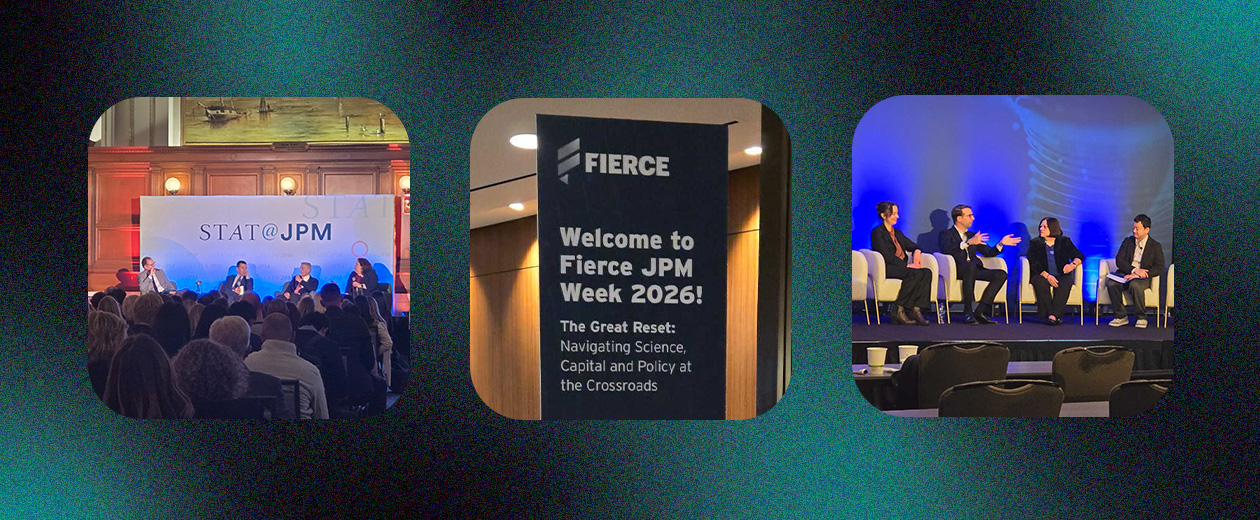
February 2, 2026
February 2, 2026

Reading time
July 10, 2024
April 13, 2021

Move over, podcasts: the new “everyone has one” trending media is… email? It’s true: Email is back in a big way, with Substack seemingly propelling the lowly internet newsletter from nuisance to must-read overnight. We saw a number of our favorite journalists — and our own alum — launch Substacks last year, and now count Alex Kantrowitz’s Big Technology, Newcomer, and Casey Newton’s Platformer among our top daily reads. In just the past year alone Substack has grown from 100,000 paying subscribers to half a million. As a communications agency, we’re keeping a close eye on how the rise of Substacks will ultimately impact the role of traditional media and potentially change the news cycle as we know it. A lot remains to be seen with regards to Substack’s staying power and overall influence, but for now: What do PR professionals and our clients need to know? Are they pitchable?
The fintech industry in particular never has a dull moment in the news cycle, so we spoke with three of our favorite fintech-specific newsletters to get a deeper understanding of what they want to cover, how they work and what they think they’re watching.

Julie VerHage-Greenberg, a former Bloomberg reporter, co-founded Fintech Today with fellow former journalist Ian Kar. They’ve since expanded their fintech newsletter empire to include FTT+, a paid, subscriber-only newsletter with deeper dives.

Nik Milanovic works in tech by day, writes a column for Forbes and pens the weekly This Week in Fintech recap. He similarly has expanded his newsletter reach to include a weekly news roundup, a separate funding roundup email, and a monthly geo deep-dive conversation looking at fintech’s global evolution.

Alex Johnson is a director of research and consulting and writes Fintech Takes, a deep-dive newsletter on the area of fintech he’s most excited about that week, or addressing the “foolish questions” we’re afraid to ask.
Here’s what they had to say on how they got started, what they cover, and what kind of pitches might land.
What do you think is the biggest difference between writing for Fintech Today (FTT) and writing for Bloomberg?
The biggest difference is the style of writing. At Bloomberg, a news story or larger piece for Businessweek takes on a very different tone from the author than one of our newsletters for Fintech Today. The Fintech Today audience knows exactly what they are coming to us for: Fintech. At Bloomberg, you have a consumer audience as well as a Wall Street audience on the terminal that come to the site for a variety of reasons.
How would you describe the average FTT reader?
We have three types of readers. The first is the novice just looking to dip their toes into the space. The second is a fintech junkie who wants as much content as possible. The third is the high level exec or VC who just wants our deeper dives and the content we keep behind our paywall.
You’ve obviously built amazing relationships with fintech execs — do you find they’re more forthcoming now?
I think they are, yes. This is largely because they know I have full authority over my writing and an editor isn’t going to insert another opinion. They also know our audience wants to dive into the nitty gritty of fintech in many cases, which gives them room to get more in the weeds and not worry about speaking to the average consumer.
How do you go about building new exec relationships now (i.e. Twitter? Personal intros from within your network)?
Twitter, my network, as well as our exclusive Fintech Today off-record Slack community are huge sources for engagement and networking opportunities. The Fintech Today community has done a great job adding in a variety of voices from our space, whether it be different roles or different backgrounds.
What’s your process like for deciding what to focus on each week?
Some things are obvious, such as the Robinhood hearings as of late. Other times, things pop up that we quickly dive into for our audience.
Would you consider FTT “pitchable”? What does engagement look like — do you get more/fewer emails in reaction to what you’ve written than you did at Bloomberg?
To a certain extent. We only have so much room for news in each newsletter though so we’re rather picky. I get fewer PR pitches at Fintech Today and that’s been nice ;)
In addition to your day job, you also write for Forbes. How would you describe your This Week in Fintech audience vs. your Forbes audience?
I started my newsletter almost two years ago because there was no single, concise way to get a weekly full-market update on what's happening in fintech and financial services. The goal of the newsletter is to be that update: one way to quickly digest all the headlines in a week. Forbes definitely casts a wider net with an audience looking for someone who can 'paint the beach' by covering broader trends in fintech. This Week in Fintech is meant for everyone from fintech newbies to hardcore multi-decade payments nerds who want to get a more in-depth look at what is happening and what is changing on a week-to-week basis.
Would you consider This Week in Fintech “pitchable” by PR people/other fintech companies?
Fortunately, the profile of the newsletter has risen enough that I now get a lot of inbound announcements from startups and PR people, which I really appreciate. If you want to target a specific audience of hardcore fintech people, I'd consider This Week in Fintech in your option-set. Keep sending me news events when they happen! Even if I don't get the chance to respond, I'll try to include them. (And please please send a link to the PR in your emails; so many great PR people just send the writeup in-email or as an attachment, neither of which I can include in the newsletter.)
What made you want to start the Substack — and what’s the process been for growing it? Largely organic? Through what means?
I actually started writing This Week in Fintech as an internal memo for my team at work to keep people in the loop on market changes. A few people forwarded it and that's when I realized that there was larger demand in the fintech industry for a 'fintech Term Sheet'. It grows through word-of-mouth referrals alone; I don't do any paid advertising for it, which is the way I like it.
We’ve seen a big boom in fintech substacks over the past few years — what’s your opinion on the boom? Is it just the latest iteration of “everyone starting a podcast in lockdown” or do you think they accomplish something different?
There are so many good fintech writers! I highlight a lot of their substacks in my newsletter and wrote an article on a few for Forbes. I love the rise in coverage and even though I don't always get a chance to read everything, I subscribe (and talk to) a lot of other writers in the space. I hope the boom in Substacks piques more people's curiosity and leads to more smart people joining the industry to work on novel solutions to persistent problems.
Substack is doing a lot for independent journalists in terms of handling payments, their legal defense fund… what do you predict they’ll add in the future/what do you wish they’d add?
I would love to see them add tools to split newsletters by specific audience segments. I'm sure I have readers who just care about fintech financings / transactions, and many who just care about the news headlines, and it would be great to let them pick and choose which portions to sign up for so they don't have to scroll through less relevant ones.
The challenge with traditional financial services media is that in order to be taken seriously by your audience you have to project yourself as a deep subject matter expert. This tends to lead to the use of more acronyms not less and a trepidation about appearing dumb.
How would you describe your audience and what do you like most about them?
My audience is fairly broad — VCs, fintech company founders, bank executives, industry analysts, media, students — but the thing that they all have in common is a burning curiosity about all things fintech, which is my favorite thing about them. Everyone is trying to learn from each other and everyone is incredibly generous with their time and expertise.
How would you describe what you're trying to accomplish with Fintech Takes?
I’m trying to focus on stuff that doesn’t make sense. Fintech moves really fast and there are a lot of passionate people working in it, which is really cool! However, that also leads to a lot of groupthink. Everyone just sort of rallies around a specific concept — self-driving money for example — and says “this is the way” without always thinking through all the potential challenges and downsides. As a result, we tend to gloss over the stuff that doesn’t make sense. With Fintech Takes I’m purposely trying to slow down and look critically at these new trends, business models, and technologies.
We love that you periodically encourage your community to ask “foolish fintech questions.” You mention that your newsletter and Twitter provide a safe space for us to indulge those. Do you think traditional media falls short on the willingness to answer really basic questions?
I do. The challenge with traditional financial services media is that in order to be taken seriously by your audience you have to project yourself as a deep subject matter expert. This tends to lead to the use of more acronyms not less and a trepidation about appearing dumb.
What I love about fintech (and the community that has started to spring up around Fintech Takes) is that everyone is trying to fundamentally change the way financial services works, which requires first principles thinking — you have to start with really basic, foundational questions like “what is a payment?” and build up from there. It’s amazing how many innovative ideas come from asking these “foolish fintech questions”.
Fintech Takes is focused more on deep dives than on a weekly news roundup. How do you choose a topic for the week?
Usually, topics will bubble up out of all the weekly news. I’ll see common ideas or concepts across a number of different areas and then I’ll try to weave all the threads together and point out where I think the opportunities are. I try hard not to have the first take or the hottest take, but to have a take that gives the broadest, most useful perspective. I rarely succeed at this, but that’s the goal. Occasionally I’ll have an experience as a financial services consumer that so enrages me that I’ll write about it, even if literally no one else in the industry cares about it. Mortgage servicing is the one I’m currently fuming about.
Would you consider yourself “pitchable” by fintech companies with relevant data, or whose opinions you might want to include? What’s your advice to fintech execs or PR teams on the best way to work with Substack authors?
Absolutely. I want to have interesting conversations. That’s what my newsletter thrives on. So, the best things that PR teams can do is 1) read my stuff so you know exactly what I tend to find interesting, and 2) connect me directly with interesting people who are in the weeds solving hard fintech problems. It takes a lot of work to do the research and it takes a willingness to “let go of the steering wheel” a bit to facilitate frank conversations, but that’s where all the value is. I’m always happy to chat with fintech founders or execs, even if it’s just to say hi!
Anything else we (as a PR agency) or our clients (awesome fintech companies) should know about Fintech Takes?
Fintech is only valuable insofar as it makes people’s lives better. Always bring the story back to that. Unicorns are boring. So are SPACs. My favorite trends, companies, and founders to write about are the ones that are most directly connected to better financial outcomes for consumers and businesses.

January 28, 2026
January 28, 2026

January 8, 2026
January 8, 2026